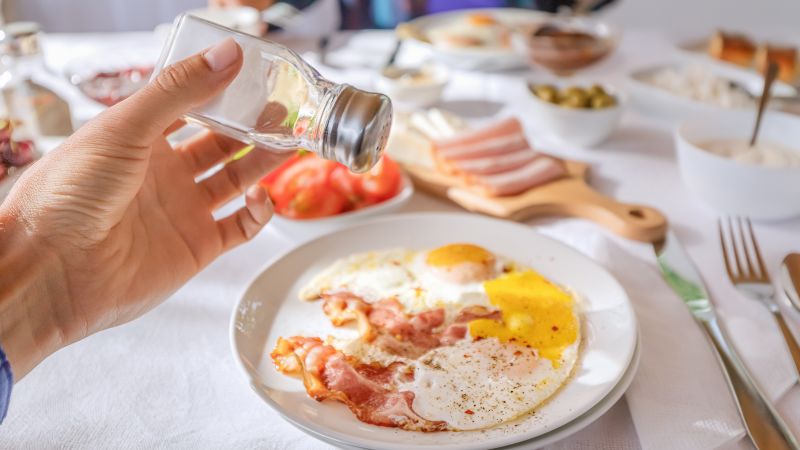Using less salt in your food may seem boring, but the payoffs could be as big as a lowered risk of death, new research has found.
Using a salt substitute when cooking was linked with a lower risk of dying early from any cause or from cardiovascular disease in a new study published Monday in the journal Annals of Internal Medicine.
“We are excited to be able to provide evidence that salt substitutions are effective for improving cardiovascular outcomes when used long-term, up to 10 years,” said the study’s senior author Dr. Loai Albarqouni, an assistant professor at the Institute for Evidence-Based Healthcare at Bond University in Australia. “Previous synthesis tended to focus on short-term outcomes, lasting only two weeks.”
I encourage any US Americans reading this to start looking at the salt content of your foods. It is ALWAYS high. Even canned vegetables. You specifically have to get “no salt added” canned vegetables, and it’s ridiculous.
Try cooking foods yourself and adding spices and maybe a little salt. Be weary of spices even, salt is often the first ingredient. I love creole seasoning but it’s all full of salt so I had to buy the individual ingredients (garlic powder, onion powder, paprika, etc.) and make it myself.
Spaghetti is a common, easy to make meal. The premade sauces are cheap but so, so full of salt. Try making your own using (no salt added) crushed tomatoes. So good!
Nah. I’m going to heavily salt the pasta water and top the pasta with salty sauce and then die early a happy man.
But, but… I specifically requested you to not do that.
deleted by creator
deleted by creator
What table salt substitute do people generally use? I couldn’t find over the counter salt substitute in my area so I’ve been using ginger (fresh sliced or dried powder) so less Sodium is consumed.
According to this page from USDA, it contains more potassium than sodium:
Potassium, K: 415mg
Sodium, Na: 13 mg



